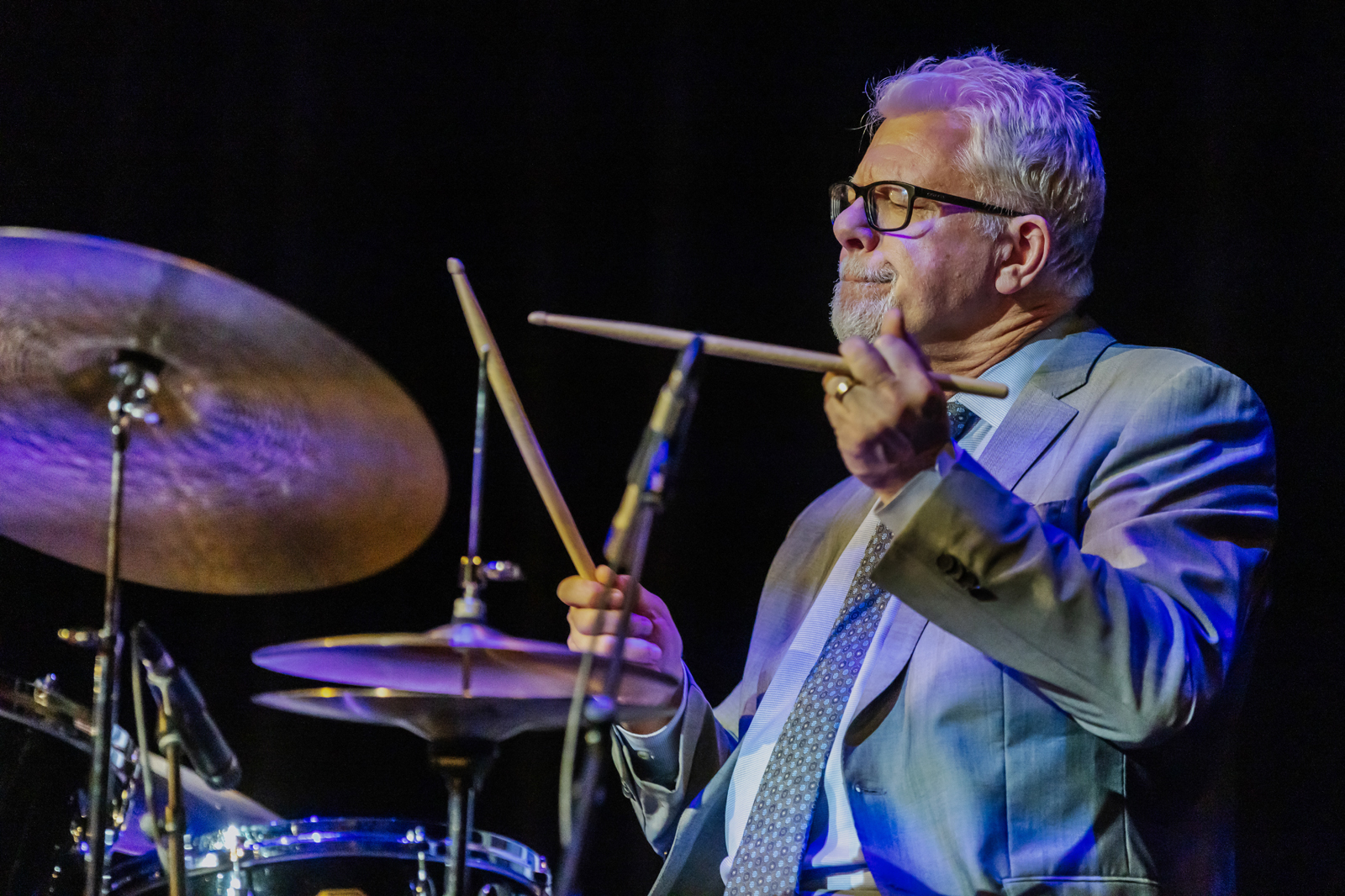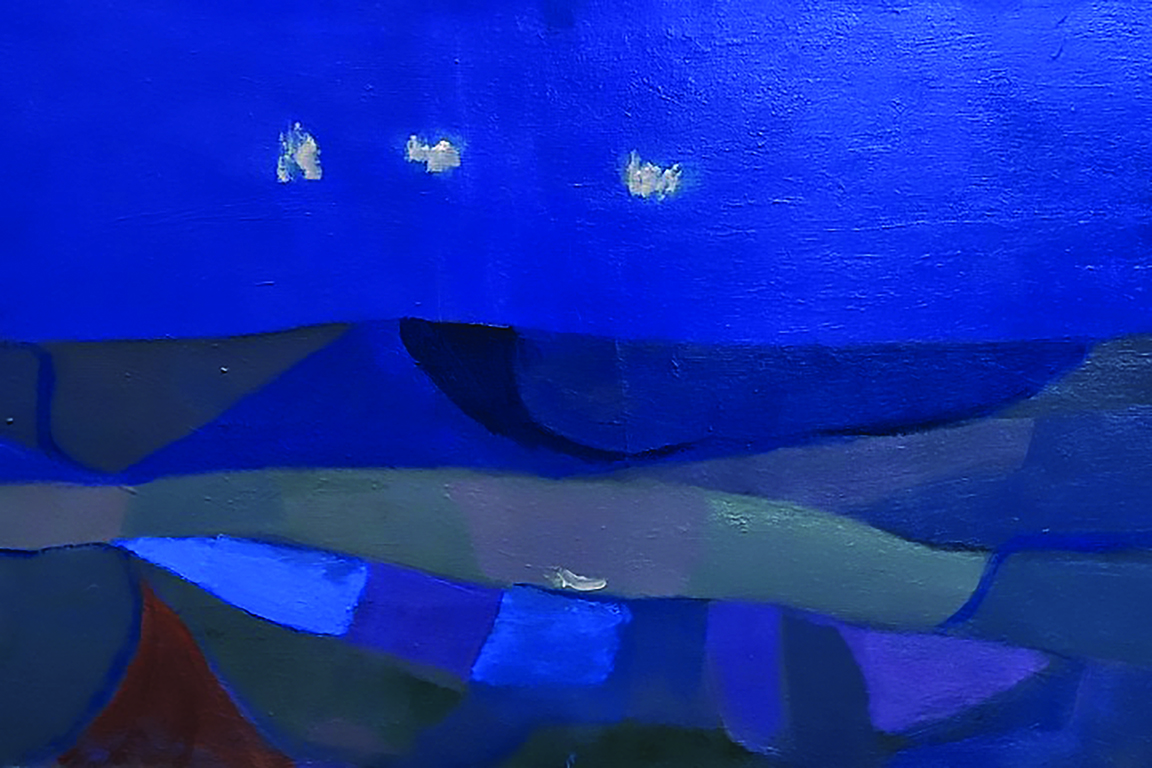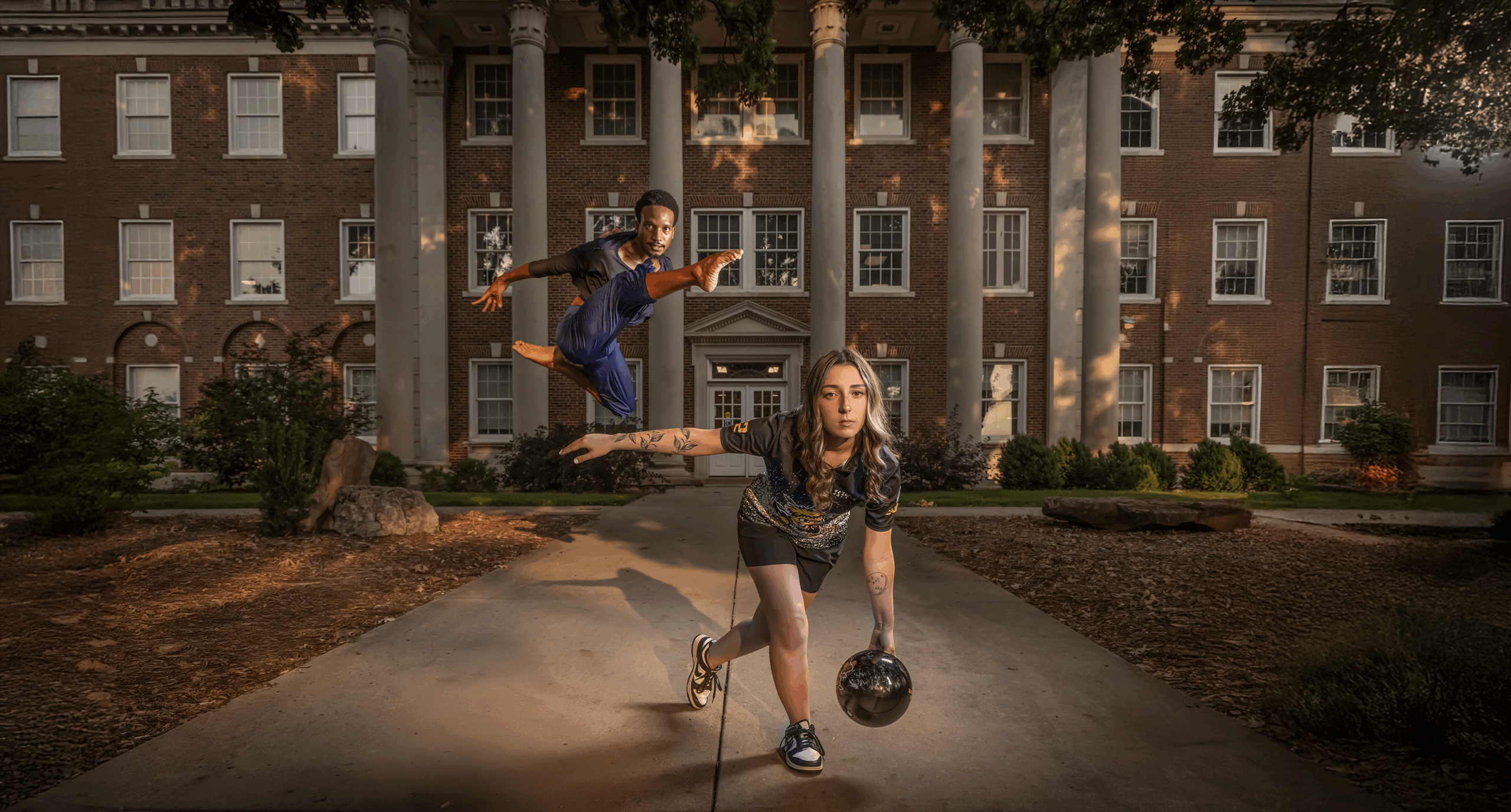History & Hope

Lily Parker ’23/25
Dollar in, dollar out: It’s a lifestyle every public radio professional knows well, and Debra Fraser at KMUW is no exception.

A veteran of the airwaves, Fraser spent 25 years at KUHF Houston Public Media, a service of the University of Houston. She worked her way up to manager before joining KMUW as general manager in 2014. After nearly four decades in public radio, she’s all too familiar with the industry’s many crests and troughs.
While the financial turbulence of public radio is nothing new, the federal defunding of National Public Radio that took effect this past July heightened the fiscal vulnerabilities of NPR’s more than 1,000 member stations across the United States, each of which is independently licensed and operated. NPR reports that more than half of its stations are licensed to a college or university. KMUW is a case in point: Its license to broadcast is held by Wichita State, meaning, among other things, that the station’s fundraising efforts are inextricably connected to those of the university and its philanthropic arm, the WSU Foundation and Alumni Engagement.
In fact, KMUW receives 17% of its funding from WSU, which, Fraser says, pays rent for the station’s facility in downtown Wichita and four professional staff positions. Another 7% of the station’s funding came from the Corporation for Public Broadcasting, with foundation (2%) and state (1%) grants also providing support. “Even still,” she adds, “we pay our electric bill, for toilet paper and paper towels. We clean up after ourselves, since we can’t afford custodial services.”
The bulk of KMUW’s operating costs are funded by private donations, what Fraser calls “paying on the honor system” — 13% from business sponsorships and 60% from individual listeners’ donations, to be specific. When the economy is uncertain, the job market’s in flux and inflation’s on the rise, that’s “a scary place to be,” Fraser says. After taking up the GM mantle, Fraser implemented the Sustaining Membership program, which allows listeners to make an automatic monthly contribution in support of the station. “People give $5, $10 a month, so, individually, these aren’t major gifts,” she says. “But, combined, they give us an income we can depend on, so we’re not just worrying about if we can pay the electric bill next month.”

For everything else, she says, they simply depend on history and hope.
The station’s history traces back to Tuesday, April 26, 1946, the date WSU officially joined the “golden age” of broadcasting as the voice of an announcer came crackling across the airwaves: “This is KMUW, the new FM radio station of the University of Wichita.” With its call letters derived from the first letters of the state and university of its origin, KMUW has come a long way since its ground-breaking beginning as a 10-watt noncommercial FM station, the second FM station and the first noncommercial FM station in Kansas — and the first noncommercial FM station to go on-air in the United States. Its primary function was serving as a training station for students intent on exploring careers in broadcast journalism. From that humble transmitting-power start, KMUW increased from 10 to 250 watts in 1962, to 10,000 watts in 1970 and, in 1987, to 100,000 watts.
In 1981, the station relocated from its first on-campus bases of operations to the now demolished Blake Hall at Holyoke and 17th Street. When it outgrew that facility, it moved operations away from WSU’s main campus in 2016 to its current digs in WSU Old Town.
Today, a most impressive cadre of broadcast journalists, sound engineers and programmers have, at one point or another during their careers, called KMUW home. On staff now, in addition to Fraser, are 22 seasoned pros, many of whom are Shocker alumni, and three interns: Jenni Anima, Maddy Busby and Amina Jenkins. Anima is learning the ropes through an internship with Radio Real as the station’s Spanish language news intern, while Busby is working through News Lab in cooperation with WSU’s Elliott School of Communication. Jenkins is the 2025 KMUW Korva Coleman intern who served a 10-week stint from May 27 to Aug. 1 reporting and writing for both broadcast and digital platforms.
In July, after Congress cut $1.1 billion in funding for the Corporation for Public Broadcasting,
Fraser and her team took immediate action. In an emergency fundraiser, the station raised just over $225,000, which was the amount of federal cuts affecting KMUW. “We were fully prepared to go all day, every day until we covered the funds lost,” Fraser reports. “Our listeners and supporters came through for us in two days.” Without their support, she says, the station could have lost at least three full-time staff members. The funding will help KMUW maintain its news coverage, local music programs and reporting in rural parts of western Kansas, where, without public radio, many communities risk living in news deserts, in which inhabitants have limited,
if any, access to local news.
Such a quick and decisive response from KMUW supporters, who include WSU President Rick Muma and First Gentleman Rick Case, has bolstered Fraser’s sense of hope for the future of not only the station she leads but public radio in general. She says it makes her feel hopeful to get the chance to elevate voices that a listener might not otherwise hear. It makes her feel hopeful to be a part of the nonprofit StoryCorps’ initiative to bridge listeners across the political spectrum through the One Small Step program.
It makes her feel hopeful when KMUW simply broadcasts its wide-ranging programming — on its own distinctive KMUW 89.1 wavelength. “Because the news we share with our listeners is so often so very serious, tragedies and political turmoil and the like, we do try to not take ourselves too seriously all the time,” she says. “We see ourselves as a bubble of curiosity, as lifelong learners — as quirky.”
When the WSUFAE announced in April that it had added a full-time gift officer position with dedicated time for helping fundraise for the station, Fraser gained another reason to feel hopeful. The position was incepted by Telly McGaha, WSUFAE president and CEO and a strong advocate for public radio.
“Since his arrival last year, Telly couldn’t have been more welcoming,” Fraser says.“I almost wanted to cry in a good way because he was that welcoming, that supportive.” Aiden Powell ’25 was hired to fill the new position and now serves as assistant development director for two WSU colleges and KMUW.
While Fraser’s hopeful outlook for the future of public radio doesn’t erase any of the uncertainties inherent in her work at the station, that sense of hope, combined with KMUW’s own longstanding history of adapting to change, has given her something — and many someones — to believe in.
“Being so dependent upon people, individuals, offering up their personal treasure and earnings — that’s scary, yet remarkable,” she says. “It tells you a lot about the Wichita community, which supports us because they care about what we do and believe in our mission.”
It’s a mission that, with a healthy dose of hope, Fraser expects to persevere.



